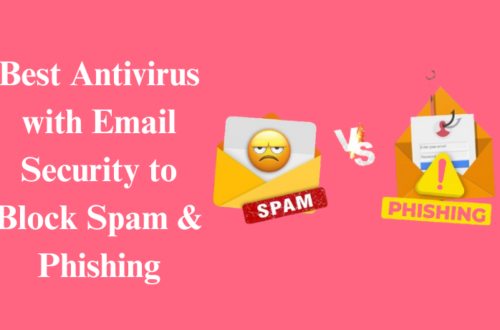Let’s face it—sending your résumé into the digital void can feel like tossing a message in a bottle into a stormy sea. The job market is wild enough without dodging cyber crooks and shady job portals. So, if you’re wondering how to protect your online job applications, you’re not alone. With identity theft, phishing scams, and data breaches lurking around every corner, playing it safe isn’t optional—it’s essential. Grab a coffee and buckle up because we’re diving into the smart, slightly paranoid (but necessary) ways to job hunt without getting burned.
Keep It Tight: Why Your Job Search Needs Security Now
When you’re hustling for that next gig, it’s tempting to fire off résumés like confetti. But hold up—where’s all that info going? Your name, address, employment history, maybe even your Social Security number- that’s a digital goldmine for scammers. Here’s how to protect your online job applications from turning into someone else’s payday:
Double-Check Before You Click
Not every job board is created equal. Some are legit; others… not so much.
-
Stick to reputable platforms like LinkedIn, Indeed, or Glassdoor.
-
Avoid “too good to be true” listings—they usually are.
-
Look for HTTPS in URLs for secure connections.
-
Do a little stalking—Google the company, check for a real website, and maybe even peek at LinkedIn profiles of current employees.
Customize, But Don’t Overshare
Yes, you want to stand out. But giving away too much can cost you.
-
Leave off sensitive data like your Social Security number, full date of birth, or home address unless it’s specifically required and you’ve vetted the platform.
-
Use a professional email address that is not tied to your personal or financial accounts.
-
Consider a virtual phone number instead of your main line—Google Voice works great.
Got Firewalls and Filters? Here’s What to Use and How
Alright, now that you’re being cautious with where and what you’re sharing, let’s talk digital armor. Because even the savviest job seekers need backup.
Use a VPN
A Virtual Private Network encrypts your connection, keeping snoops out of your job-hunting business.
-
Especially important when using public Wi-Fi—coffee shops aren’t as cozy when hackers are sipping your data.
Email Smarts Go a Long Way
Emails are a scammer’s playground. One bad click, and boom—your info’s out the door.
-
Hover over links before clicking to spot weird URLs.
-
Check the sender’s address—look for typos or extra characters.
-
Don’t open attachments from unknown senders.
Passwords: Get Weird With Them
Don’t be that person using “password123.” Come on, now.
-
Use long, unique passphrases—think “MangoPizza!Tuesday1987” instead of “123456.”
-
Switch it up for every site—a password manager can help juggle them.
-
Enable two-factor authentication wherever possible.
Red Flags and Sketchy Stuff You Should Never Ignore
Job hunting should feel exciting, not like an episode of CSI: Job Market Edition. But hey, the scammers are getting sneakier—don’t get caught off guard.
Watch Out For:
- Jobs that offer money upfront or ask you to buy equipment.
- Vague job descriptions with big promises but little detail.
- Recruiters contacting you via Telegram or WhatsApp, especially if there’s no job posted publicly.
- Immediate requests for personal or banking information. Big nope.
If your gut says something’s off, it probably is. Trust it.
Frequently Asked Questions
Should I give my Social Security number during an online job application?
Not unless you’re deep in the process with a verified company. Never drop that info in your initial application or on untrusted platforms.
Can scammers use my résumé to steal my identity?
Unfortunately, yes. If your résumé has your full name, address, and other personal details, it can be enough to cause trouble.
How do I know if a job post is a scam?
Look for poor grammar, pressure to act fast, weird email addresses, or “recruiters” that won’t jump on a call. Legit companies don’t hide behind vagueness.
What’s the safest way to apply for jobs online?
Use verified platforms, apply directly through company websites, and never send sensitive info unless necessary—and only after you’ve confirmed legitimacy.
Conclusion: Stay Sharp, Stay Safe
There you have it—your digital toolkit for keeping your job hunt secure and scam-free. Learning how to protect your online job applications isn’t about paranoia—it’s about preparation. In a world where data is currency, your info is worth protecting like gold. So stay alert, ask questions, and never be afraid to walk away from a fishy opportunity. Remember, the right job won’t just fall into your lap with a sketchy link attached. Go get what you deserve—safely.






